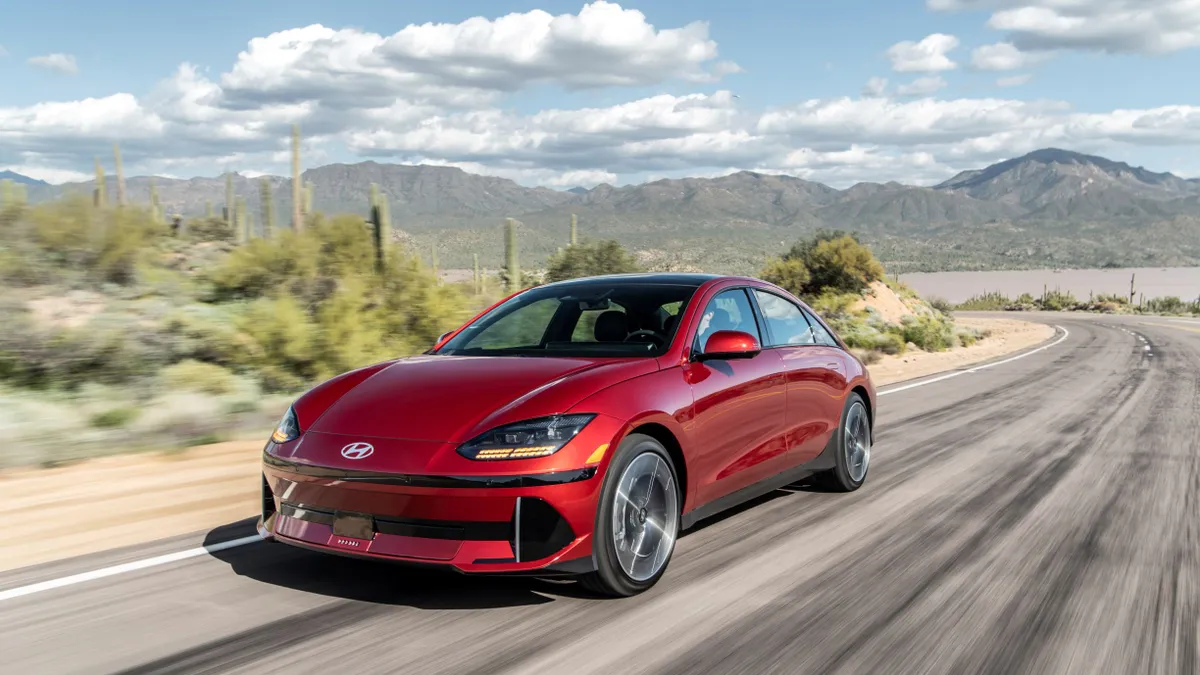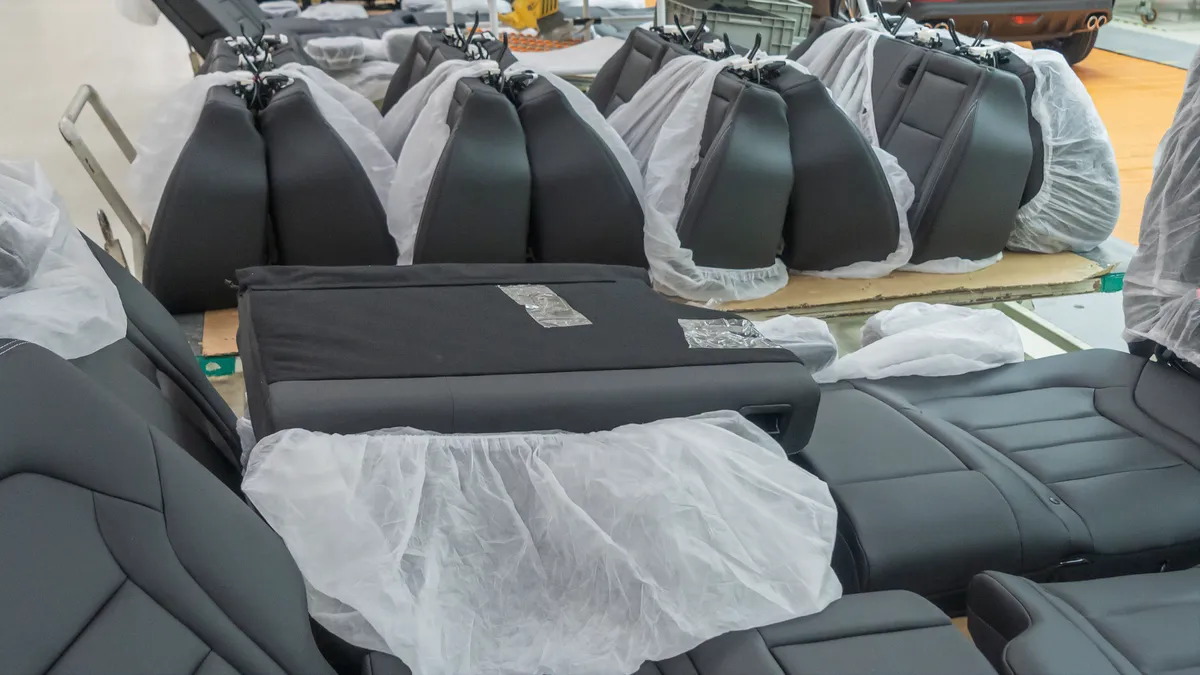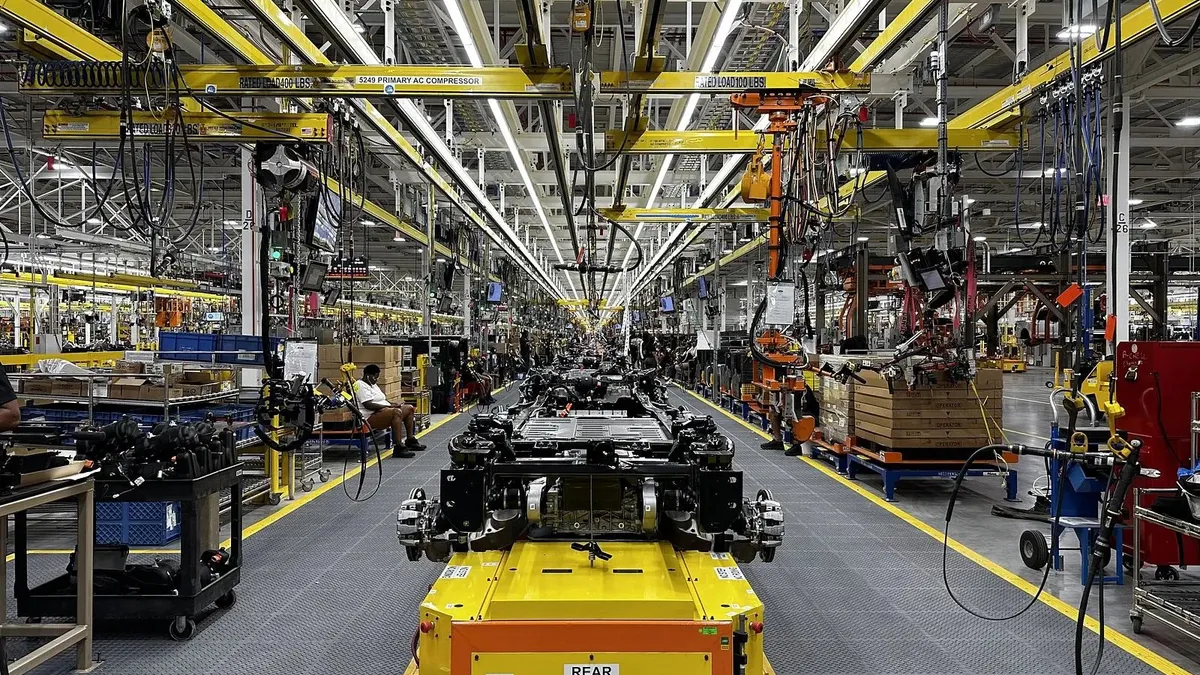Dive Brief:
- Hyundai Motor Group is partnering with Korea Zinc, a non-ferrous metal smelting company, to secure a stable supply of raw nickel to produce electric vehicle batteries, the automaker said Wednesday.
- The companies will jointly source nickel raw material and processing, invest in mining projects and explore new business opportunities like battery recycling.
- As part of the collaboration, HMG Global, a joint venture between Hyundai Motor, Kia and Hyundai Mobis, also plans to acquire a 5% stake in Korea Zinc worth about $398 million.
Dive Insight:
The partnership is part of Hyundai’s effort to ensure its future EVs qualify for up to $7,500 in EV tax credits in the U.S. under the Inflation Reduction Act. Nickel is a key raw material to produce for cathode materials for EV batteries and demand will likely increase as automakers ramp up EV production.
Hyundai aims to source 50% of the raw nickel to produce EV batteries by 2031. The nickel supply will begin in 2026, according to a press release.
For an EV to meet the IRA’s critical mineral requirement and qualify for a $3,750 tax credit, at least 80% of the value of the raw materials in an EV’s battery to be extracted or processed in the U.S. or a country that has a free trade agreement with the U.S. Automakers can also meet the requirement by recycling EV batteries in North America.
Likewise, an EV’s battery must be manufactured or assembled in North America to meet the IRA’s battery component requirement and qualify for a $3,750 tax credit.
The supply deal with Korea Zinc will also help Hyundai meet the European Union's Critical Raw Material Act, which requires that no country outside the E.U. provides more than 65% of any raw material for EV batteries annually.
In April, Hyundai announced plans to establish a joint venture with SK On to produce EV battery cells. The companies are investing $5 billion to build a battery cell manufacturing facility in Georgia near Hyundai’s U.S. assembly plants, slated to begin production in the second half of 2025. It will be able to produce 35 GWh of EV battery cells annually, enough for around 300,000 EVs.
Hyundai is also exploring other global partnerships to secure lithium for EV batteries.
The automaker plans to make 3.64 million EVs by 2030.














